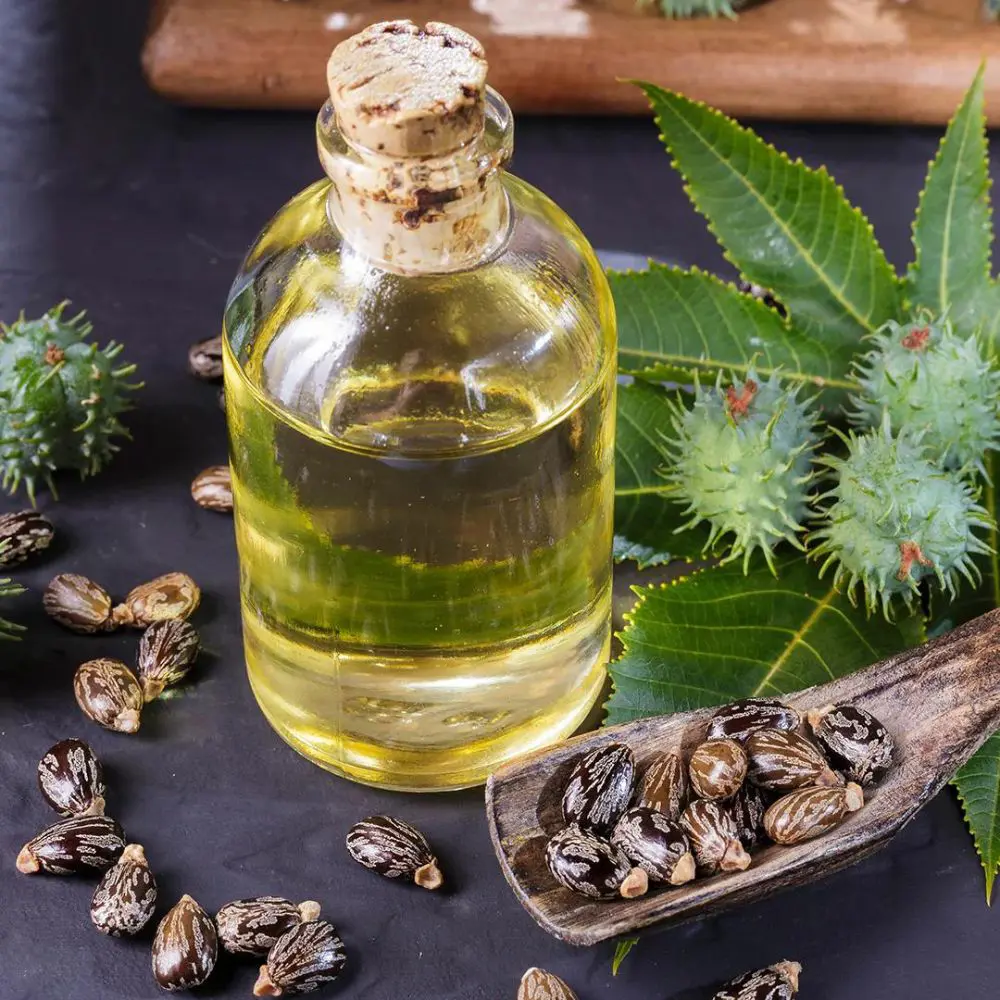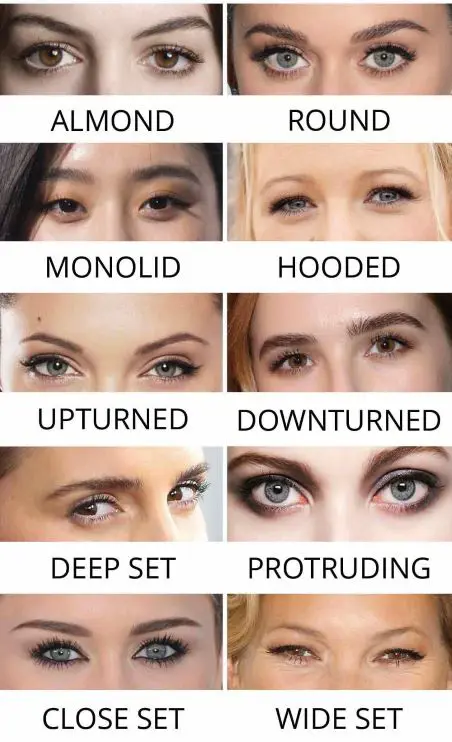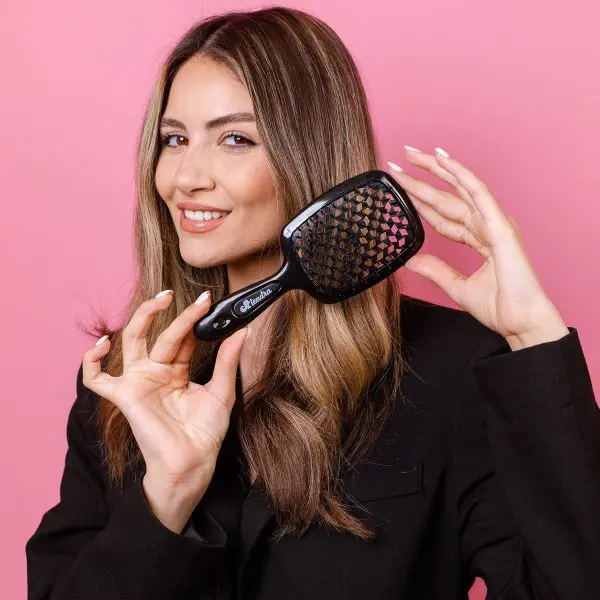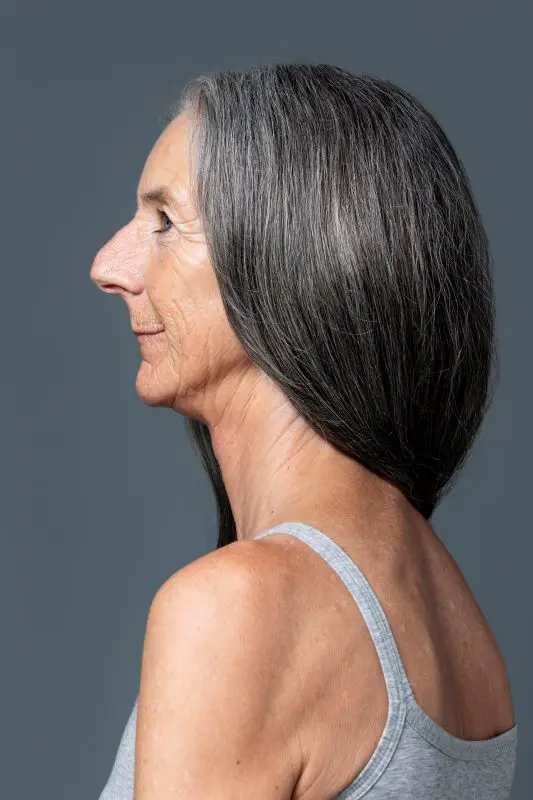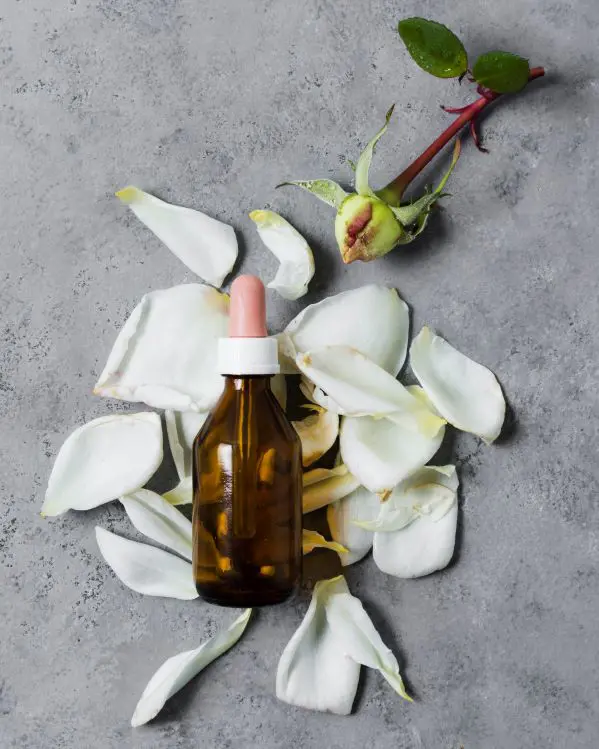You may have heard that castor bean oil is great for promoting healthy hair. But have you ever wondered how it actually helps?
Today, let's learn the benefits castor oil has to offer for your hair and discover why it’s such a popular choice. Let's begin!
1. Promotes Hair Growth
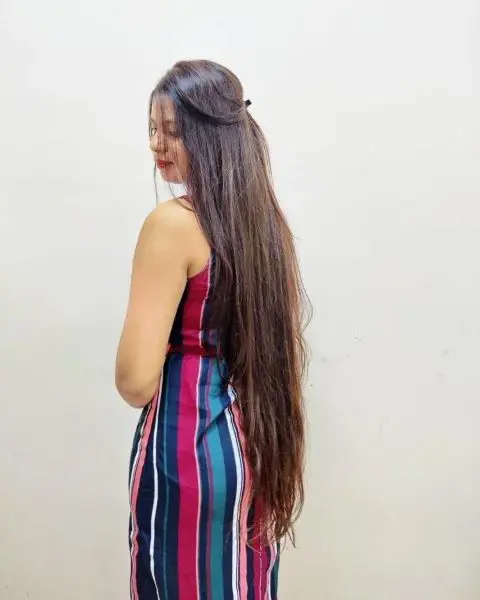
Presence of ricinoleic acid in castor oil improves the overall health of hair follicles. It improves the durability of the hair shaft, increases its strength, and flexibility.
When applied to the hair and scalp, it charges up blood circulation due to the high content of Vitamin-E and fatty acids. It also hydrates the hair by providing essential moisture, reducing dryness.
2. Reduces Hair Thinning
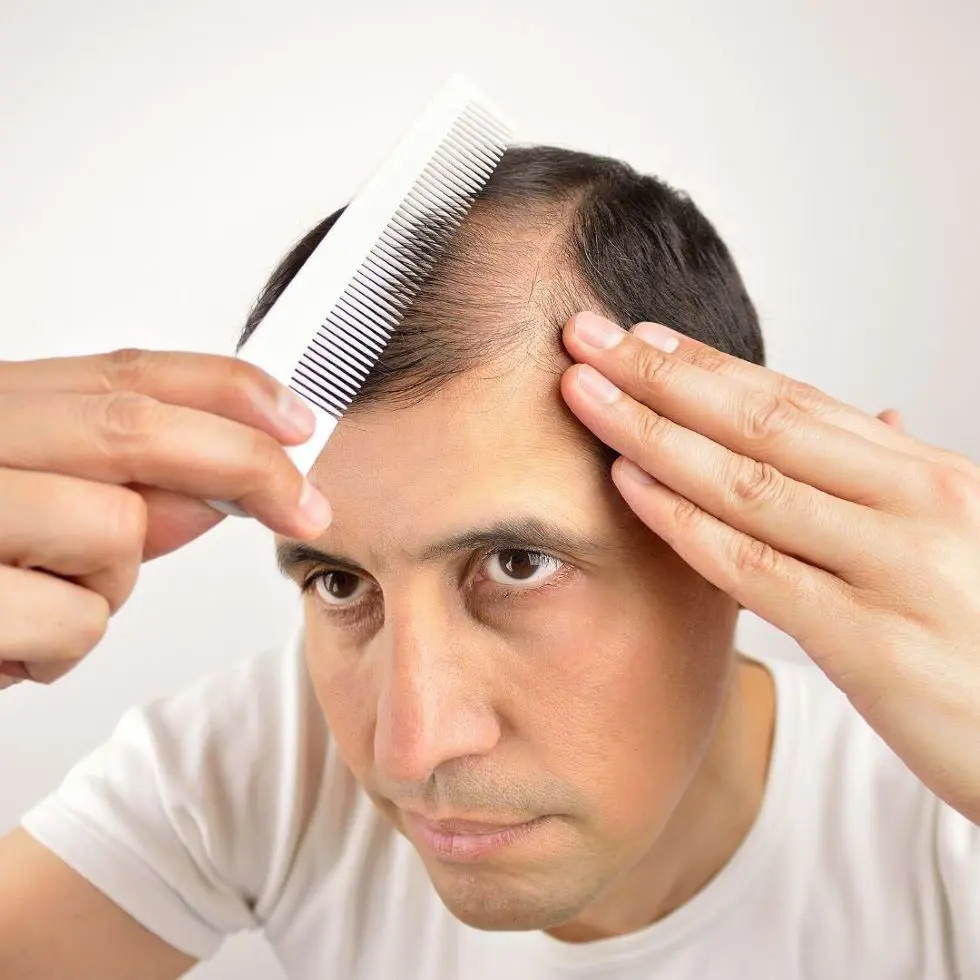
If you are tired of losing hair everyday, try using castor oil. You might be wondering why. Here's the answer to your question: First, it strengthens hair strands due to the presence of chemical composition, which promotes hair growth.
Second, castor oil reinforces the hair structures which reduces the thinning and contributes durability. With so much to offer, this definitely answers what is castor oil good for hair.
3. Moisturizes Scalp

Do you have frizzy hair? If you’re nodding then you should benefit of using castor oil beyond promoting hair growth and reducing breakages or hair loss: moisturizing the scalp.
The castor oil traps the moisture, preventing your hair from becoming dry. It revitalizes lifeless hair by hydrating it and maintaining its resilience.
4. Improves Shine
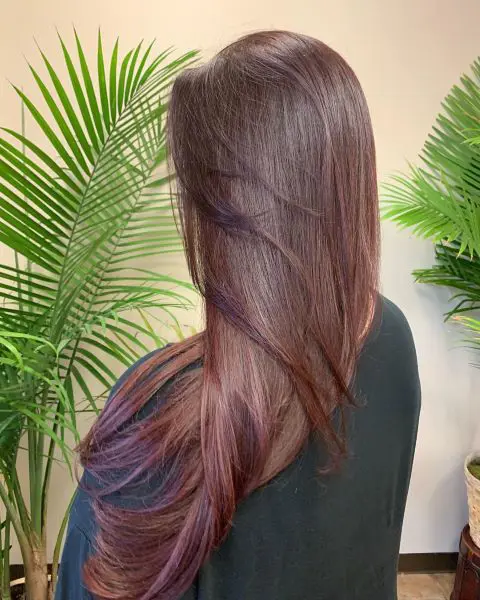
By now you might know that castor oil contains Vitamin-E, which is rich in alpha-tocopherol chemical. A compound that helps to improve blood circulation and provide a hair scalp a space to breathe.
It ultimately helps smooth the hair cuticle and gives your hair a healthy glow. Meanwhile, you can also mix coconut oil with castor oil for even shinier, more lustrous hair.
5. Reduces Dandruff
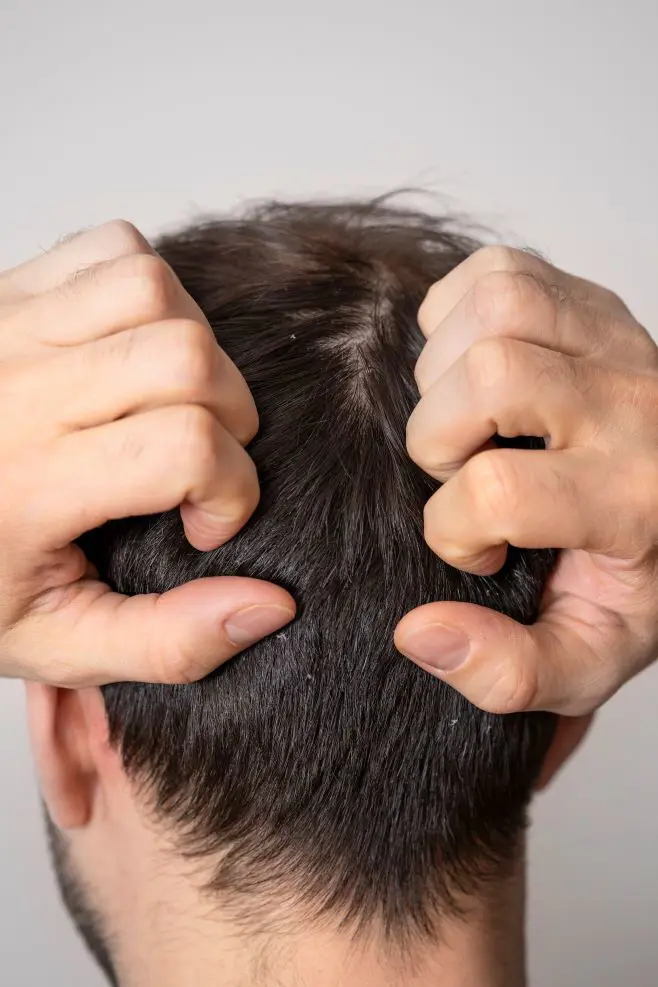
You may notice dandruff, which can result from inflammatory and microbial issues. To alleviate this problem, consider using castor oil, which contains ricinoleic acid.
This oil provides moisture to your scalp, helping to eliminate the persistence to dryness that causes dandruff. Additionally, ricinoleic acid reduces inflammation, combats fungal infections, and keeps your scalp healthy.
6. Strengthens Hair
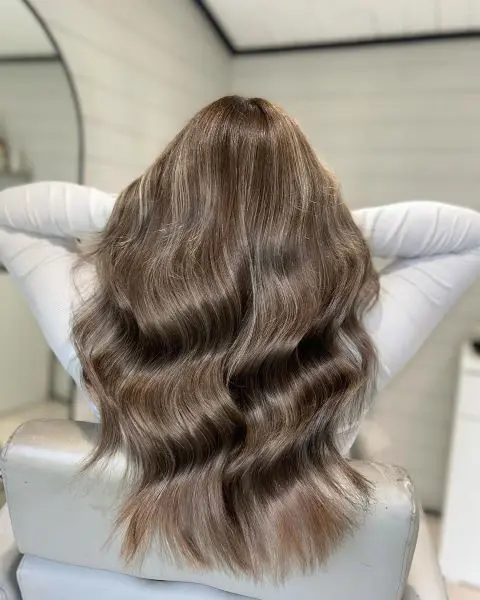
Your hair may look healthy, but when you touch it, you notice strands falling into your hands. Am I right? You’re probably looking for an easy way to manage your increasing hair loss.
That’s where the nutrient-rich composition of castor oil comes in. It helps strengthen your hair and prevent hair breakage and maintain overall hair integrity.
7. Enhances Hair Thickness
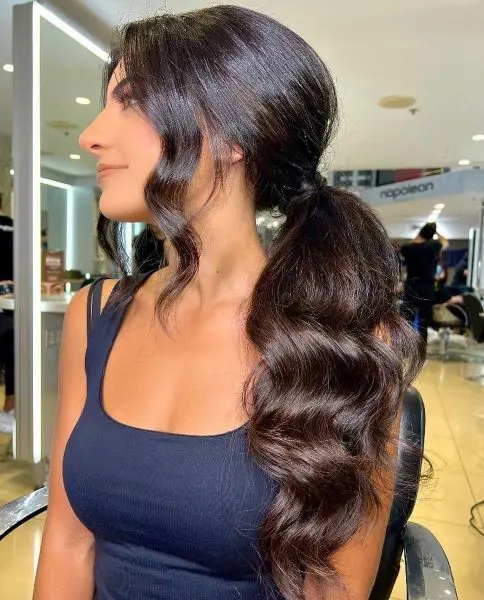
Castor oil is a humectant, meaning it locks in moisture for hair, making hair less likely to split at the ends. Due to this reason, the livelihood of losing hair loss decreases, leading to thicker hair over time.
While there’s no scientific evidence to fully support this claim, many people who use castor oil regularly reported that applying it to your scalp boosts your hair’s health.
8. Prevents Premature Graying
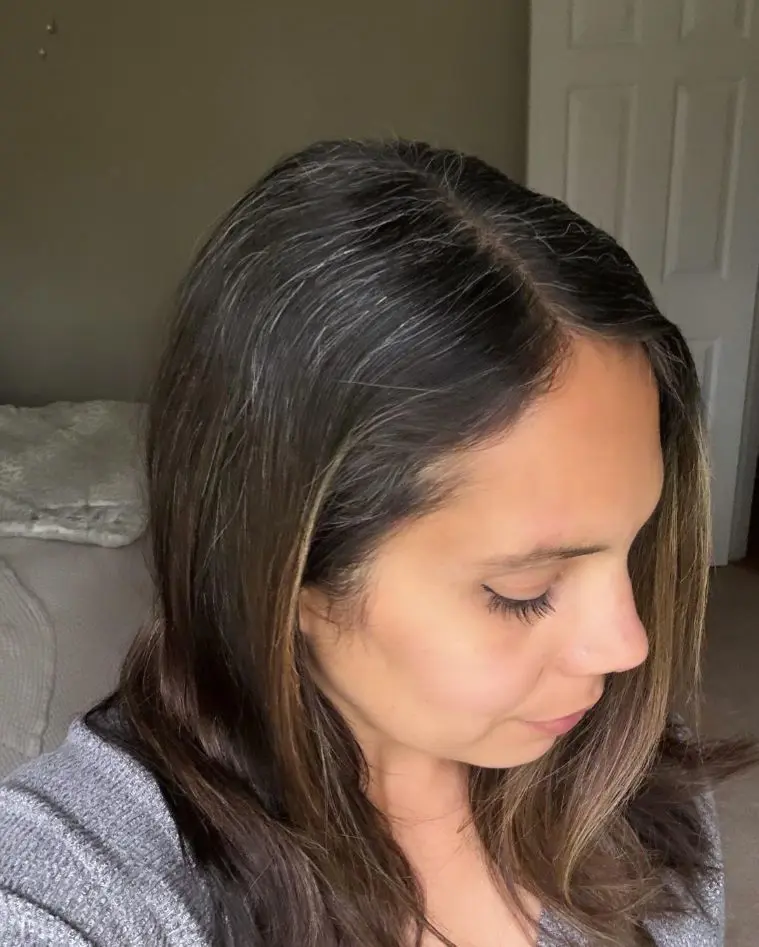
Have you noticed premature graying in your hair? If so, this often results from oxidative stress. To protect your hair, consider using castor oil, which provides antioxidants through your scalp skin and helps maintain your hair’s natural color.
Additionally, you can try some home remedies to preserve your natural hair color and overall health.
9. Conditions Hair
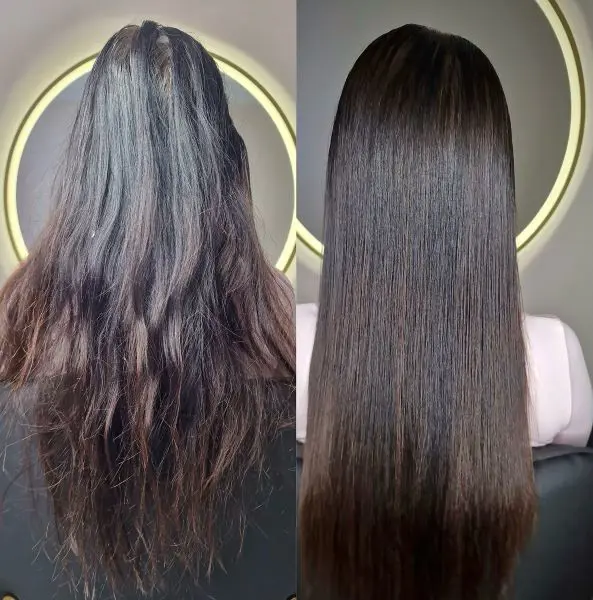
Using castor oil regularly helps nourish your hair and keep the dryness at bay. Massaging your scalp often will cause you to worry less about frizz and dryness.
This conditioning effect makes your hair softer and smoother, making it easier to style and enhancing its overall appearance and feel.
10. Balances Scalp Oil Production
Castor oil is primarily used for addressing flakiness, dryness and breakage on hair. When applied, it helps in stabilizing oil levels, preventing the scalp from becoming overly greasy or too dry.
Maintaining the right balance is crucial for protecting your hair from various forms of dryness and hair loss.
How to Use Castor Oil for Hair?
Earlier, we discussed the benefits of castor oil for hair, and you may have noticed a mention of its proper use. Now you can learn the procedure for using castor oil, but first, let’s identify the items you’ll need:
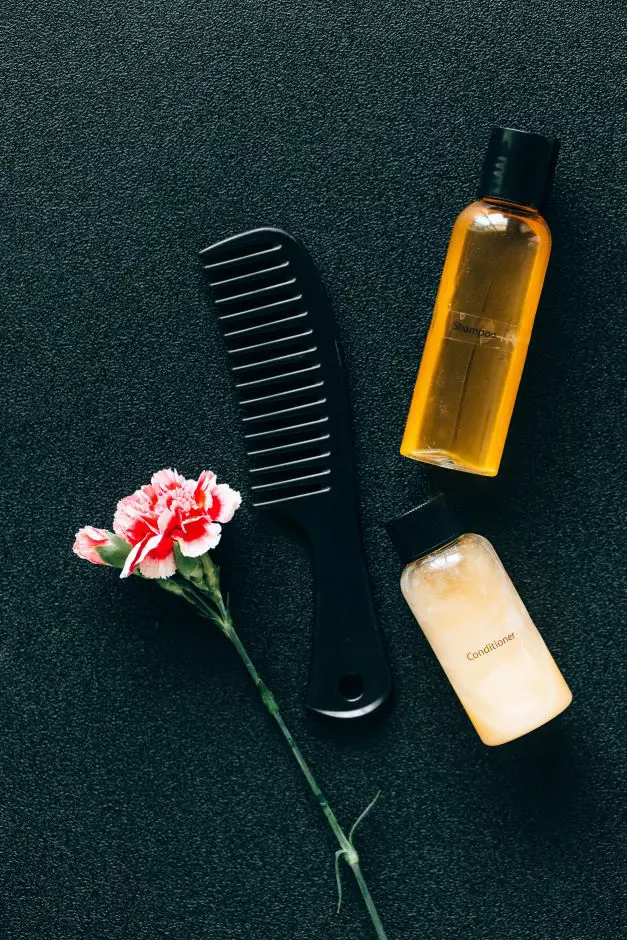
- Castor oil: High-quality cold-pressed for best result.
- Applicator Tools: Bowl, dropper, brush, or bottle.
- Detangle Tool: A wide-tooth comb or brush.
- Hair Wrap: A shower cap or plastic wrap to cover your hair after oiling.
- Protection Cloth: A towel or old shirt to keep the surface area and your clothes oil-free.
- Shampoo: A mild shampoo to extract the oil from your hair.
- Leave-in Conditioner: To lock in moisture, restore hydration to dry hair, and help you achieve a dreamy hairstyle.
- Soft Towel: For use after washing your hair.
Once you have your hair care arsenal assembled, here’s a detailed guide on how to use castor oil effectively.
Preparation
First thing first! Make sure your hair is super clean! If you have dirt or excess oil, it's best to wash it off once with a mild shampoo. Applying oil to already oiled skin can create a sticky texture, preventing oil from working effectively due to the mixture of dirt.
Once your hair is clean and dry, detangle the strands and create sections to ensure the oil absorbs oil and spreads evenly throughout your hair.
Application
Once you’re sectioned your hair, pour a small amount of castor oil into a bowl. For easier application, consider mixing it with a lighter oil such as rosemary oil, because castor oil is quite thick.
Using fingertips or a massaging kit, apply the oil directly to your scalp, then massage it in circular motion.
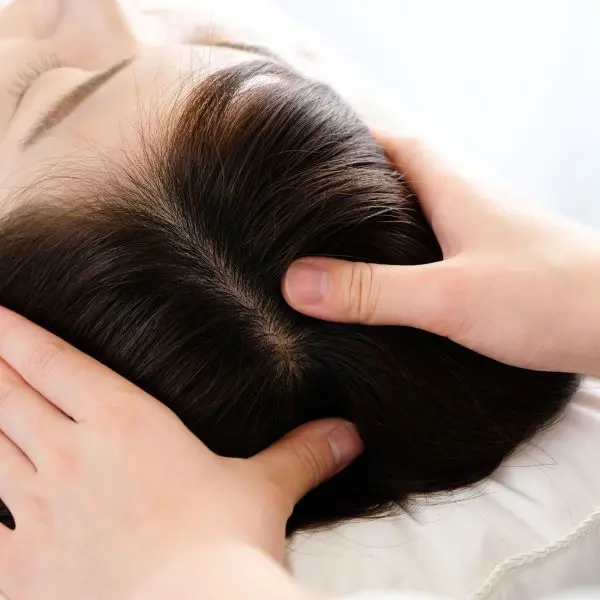
Treatment Time
You can leave hair oil in your hair scalp for a minimum of half an hour. But, if you want deep conditioning, you can leave it on for several hours or overnight.
Therefore, to prevent the oil stain, cover your hair with a shower cap or a towel.
Rinsing
Next, rinse out the castor oil thoroughly with warm water. Use mild shampoo to ensure that you don’t strip your hair of its natural moisture, and shampoo twice if necessary. To maintain the softness and make styling easier, be sure to use a conditioner afterward .
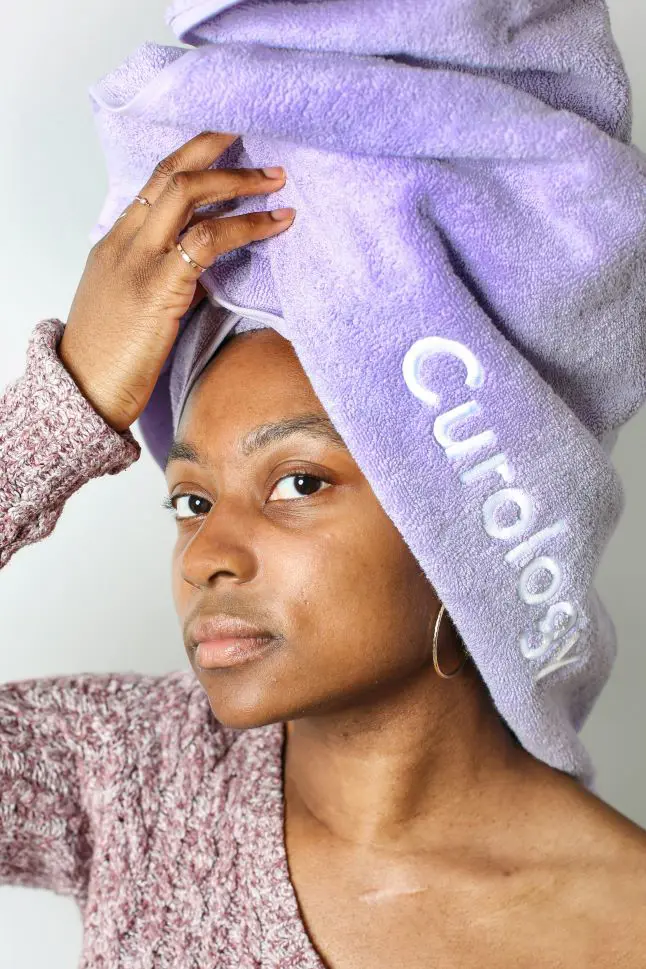
Frequency
Using castor oil once or twice a week is sufficient to achieve optimal results. However, overusing it can make your hair greasy, so it’s important to find a balance that works for your hair type and needs.
Choosing a Castor Oil For your Locks
Having trouble selecting the castor oil? Or wondering is black hair castor oil good for hair? Depending on specific needs and preferences, each type has its own features and unique benefits. So, understanding their differences can help you choose the one that best meets your goals.
Cold-Pressed
Preserving its natural nutrients and properties, cold-pressed castor oil is extracted from castor beans without applying heat. Due to its pure and unprocessed nature, scalps and hair are deeply moisturized.
Likewise, it also promotes healthy hair growth and reduces dryness and flakiness, making it an ideal choice for both hair and skin care.
Refined
The process of refined oil undergoes to remove impurities, color and odor. As it has less potent nutrients than in cold pressed oil.
Usually, it is used in industrial application and cosmetic products to reduce risk of irritations. It is also suitable for formulations where a milder oil is preferred.
Organic Castor Oil
Organic castor oil is produced from castor beans that are grown without synthetic pesticides or fertilizer. So, it is also known as the typical version of cold pressed oil.
If you are someone who prefer natural, chemical-free products, then this oil should be an ideal choice. Because it offers a deep hydration, promotes hair growth and provides nourishing care for hair and skin.
Jamaican Black Castor Oil
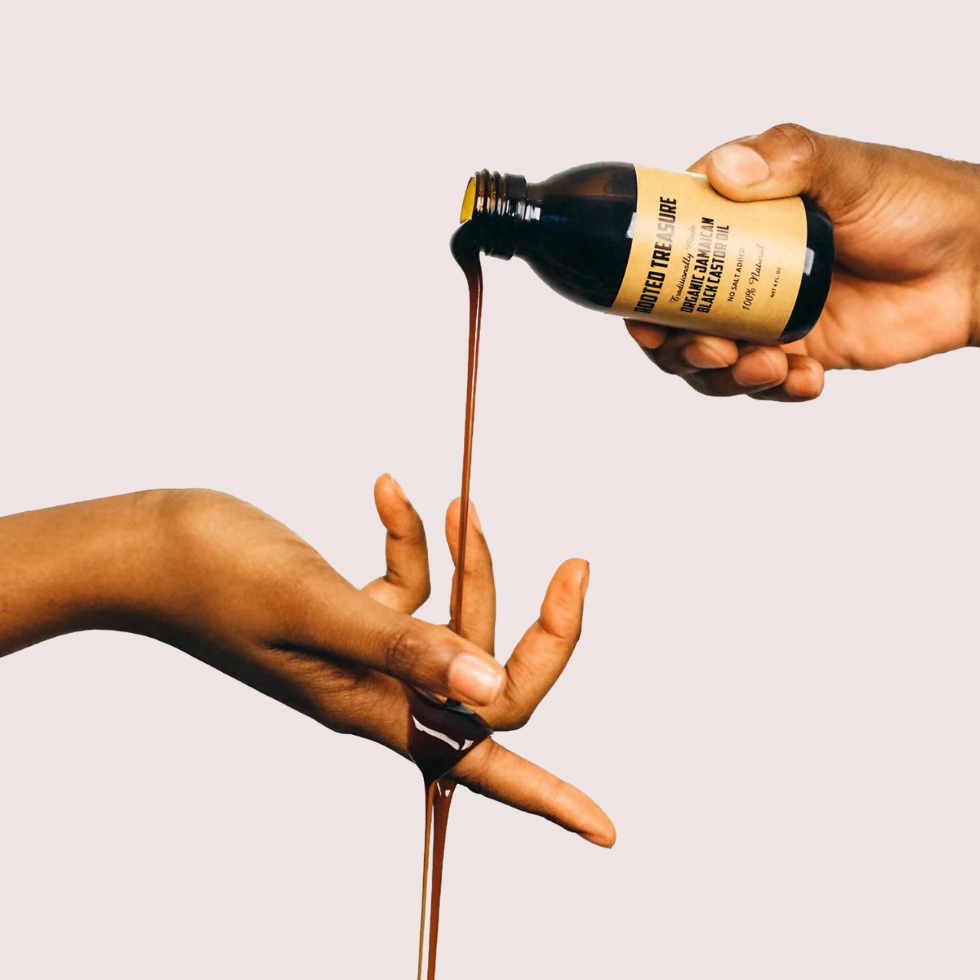
Is Jamaican black castor oil good for hair? Yes, this oil is particularly valued for promoting hair growth, improving hair texture, reducing split ends, and enhancing overall hair health.
Interestingly, the preparation of Jamaican castor oil starts before extraction. But how you may wonder? The castor beans are roasted to achieve a distinctive dark color and rich, earthy aroma, after which oil is extracted.
Hydrogenated Castor Oil
Hydrogenated castor oil differs from any other type because it is chemically modified to improve its stability and resistance to oxidation.
Like other types, this oil also benefits in moisturizing formulations; however, its key difference from cold-pressed or organic castor oil is its value in creating stable and long-lasting products.
But Hey, the Choice is Yours!
Now that you know the advantages and the differences among each type of castor oil, you should have a clearer idea of which one to choose.
Among these 5 types, now, it’s time to select the product that best suits your routine. So yeah, it's your choice!
Summary
Castor oil has several benefits and works wonder for your hair. However, it is wise to do a patch test before you start it using on a regular basis. Now you may wonder if, is castor oil good for low porosity hair?
The good news is, it does. As this oil is packed with nutrients, it works wonders not just for low porosity but for all kinds of hair.


